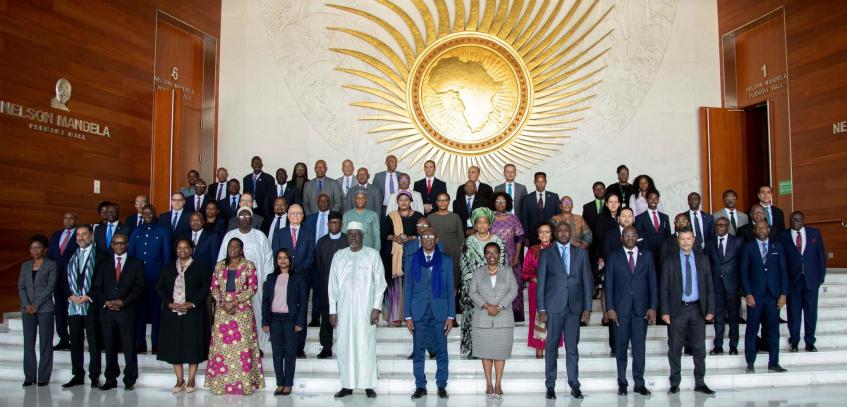The opening of the 47th Ordinary Session of the African Union’s Permanent Representatives Committee (PRC) has underscored the strategic importance of the Pan-African Parliament as a crucial component within the Union's institutional framework.
This significance was evident in the discussions held between the delegation led by Hon. Dr. Ashebir W. Gayo, the Acting President of the Pan-African Parliament, and Ambassadors from African Union member states. The Acting President highlighted the Parliament's full functionality and expressed its preparedness to actively contribute to the continental agenda throughout the year.
The Pan-African Parliament features prominently on the agenda of the ongoing PRC Session, which serves as a preparatory phase for the 37th Ordinary Session of the AU Assembly and the 44th Ordinary Session of the Executive Council scheduled for February 14-18, 2024. Recommendations on the continuity of business at the Pan-African Parliament and resolutions on outstanding issues are anticipated from the African Diplomatic Corps in Addis Ababa.
Emphasizing the strategic role of the Pan-African Parliament, H.E Moussa Faki Mahamat, Chairperson of the African Union Commission, stressed its importance during his address at the opening ceremony of the 47th Ordinary Session of the PRC. He urged the PRC to promptly address any challenges impeding the Parliament's operations, ensuring alignment with the spirit, practices, and legal instruments of the Union.
Concurrently, Hon. Dr. Ashebir W. Gayo and his accompanying delegation have engaged in bilateral discussions with PRC members and relevant stakeholders at the African Union Commission. The focus has been on securing adequate resources for the legislative arm of the Union and empowering it, including advocating for the implementation of the Malabo Protocol.
The 47th Ordinary Session of the PRC, themed "Educate an African fit for the 21st Century: Building resilient education systems for increased access to inclusive, lifelong, quality, and relevant learning in Africa," is scheduled to continue until January 26.








